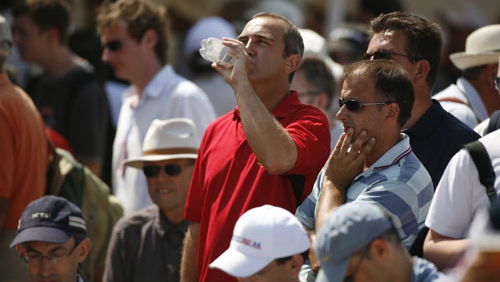Sunburn: How it can be a golfer killer
Over 1,000 men die from skin cancer every year

The recent spell of hot weather has heightened the likelihood of golfers developing skin cancer through prolonged exposure to the sun's harsh UV rays.
And as 2010 marks the 25th year anniversary of the development of the ABCDE acronym that provides the criteria for diagnosing melanoma, Golfmagic has been approached by Kate Grant, Nurse Specialist at The Mole Clinic, which offers advice and treatment for early signs of skin cancer.
"The ABCD rule is the simplest rule to help the public become more aware of their moles and help them spot any that might be suspect for skin cancer. However, the public should also remember the importance of 'E' which stands for evolving - because any mole that is evolving or changing needs to be examined by an expert right away."
In the UK one in 10 of us will be diagnosed with a skin cancer and melanoma is now the most common cancer in 15 to 35 year olds. The Mole Clinic believes early detection of melanoma, the deadliest form of skin cancer, would drastically reduce the number of deaths in the UK which currently stands at 1,800 per year.
Here's the best tips for golfers:
*Wear a hat especially for balding areas to protect your head and face
*Apply sunscreen every couple of hours especially to the nose, neck, forearms and the tops of your ears. Turning up your collared shirt will also help protect the neck. Use a minimum sun factor of 15+ and increase in hotter climates and re-apply every 2-3 hours and after being in the water and after physical activity.
*A pair of golf gloves will protect the backs of the hands which are usually the first to display sun damage.
*Wear sunglasses to protect the eyes.
Kate says: "We all love a tan but remember, a tan is not a sign of good health but rather of skin damage. Direct sun between 11 and 3pm heightens the risk of burning and 85% of melanoma cases are caused by sunburn."
Kate also reveals that while men are less likely to develop skin cancer than women, they are more likely to die from it due to lack of awareness and more than 1,000 men die from it each year in the UK.
She recommends that anyone who spots an abnormal, new or changing mole can have it checked out by the mole clinic where technologically advanced diagnostic techniques are available unrivalled experience and reassurance. It takes 10 minutes and costs £45 per mole imaged. For more information call 020 7734 1177 or visit www.themoleclinic.co.uk
��

